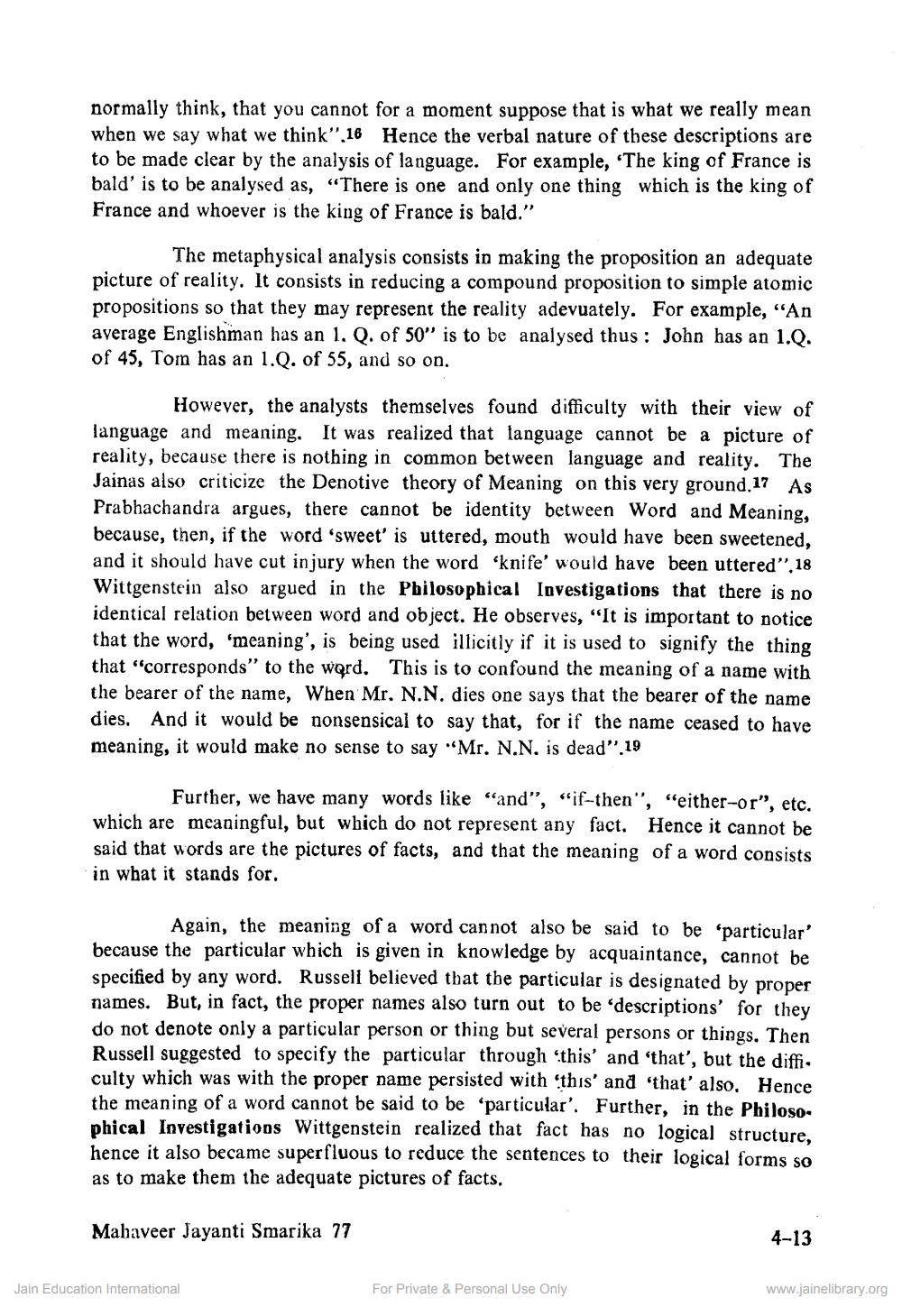________________
normally think, that you cannot for a moment suppose that is what we really mean when we say what we think" 16 Hence the verbal nature of these descriptions are to be made clear by the analysis of language. For example, "The king of France is bald' is to be analysed as, “There is one and only one thing which is the king of France and whoever is the king of France is bald."
The metaphysical analysis consists in making the proposition an adequate picture of reality. It consists in reducing a compound proposition to simple atomic propositions so that they may represent the reality adevuately. For example, "An average Englishman has an 1. Q. of 50" is to be analysed thus : John has an 1.Q. of 45, Tom has an 1.Q. of 55, and so on.
However, the analysts themselves found difficulty with their view of language and meaning. It was realized that language cannot be a picture of reality, because there is nothing in common between language and reality. The Jainas also criticize the Denotive theory of Meaning on this very ground. 17 As Prabhachandra argues, there cannot be identity between Word and Meaning, because, then, if the word 'sweet' is uttered, mouth would have been sweetened, and it should have cut injury when the word "knife' would have been uttered". 18 Wittgenstein also argued in the Philosophical Investigations that there is no identical relation between word and object. He observes, "It is important to notice that the word, 'meaning', is being used illicitly if it is used to signify the thing that "corresponds" to the word. This is to confound the meaning of a name with the bearer of the name, When Mr. N.N. dies one says that the bearer of the name dies. And it would be nonsensical to say that, for if the name ceased to have meaning, it would make no sense to say "Mr. N.N. is dead". 19
Further, we have many words like "and", "if-then", "either-or", etc. which are meaningful, but which do not represent any fact. Hence it cannot be said that words are the pictures of facts, and that the meaning of a word consists in what it stands for.
Again, the meaning of a word can not also be said to be particular' because the particular which is given in knowledge by acquaintance, cannot be specified by any word. Russell believed that the particular is designated by proper names. But, in fact, the proper names also turn out to be descriptions' for they do not denote only a particular person or thing but several persons or things. Then Russell suggested to specify the particular through this' and 'that', but the diffi, culty which was with the proper name persisted with this' and 'that' also. Hence the meaning of a word cannot be said to be particular'. Further, in the Philosophical Investigations Wittgenstein realized that fact has no logical structure, hence it also became superfluous to reduce the sentences to their logical forms so as to make them the adequate pictures of facts,
Mahaveer Jayanti Smarika 77
4-13
Jain Education International
For Private & Personal Use Only
www.jainelibrary.org




